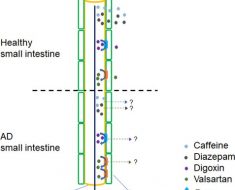
First signs that transmission of the novel coronavirus has again picked up were visible in German official data, just as the country attempts a cautious easing of its lockdown measures.
The reproduction or infection rate under close watch by health authorities mounted again to around 1.0, meaning each infected person passes the virus on to one other, figures from the Robert Koch Institute (RKI) for disease control showed late Tuesday.
Ministers and virologists have hammered home the importance of squeezing the number below 1.0.
And the country has seen days of intense media and political debate after Chancellor Angela Merkel warned Germany’s federal states against loosening their lockdowns too quickly.
Since mid-April, the infection rate had sunk as low as 0.7 before inching back up again.
Meanwhile the mortality rate from the disease has also been rising day by day.
By Tuesday, it had reached 3.8 percent according to RKI figures, which remains well below some neighbouring countries such as France.
The latest data showed 156,337 cases in Germany and 5,913 deaths.
Rising infection and mortality rates could pose a puzzle for authorities, as a population chafing at lockdown measures is just beginning to enjoy some refound freedoms and an initial united front in politics and media crumbles.
Health Minister Jens Spahn earlier in April declared the pandemic “under control” in Germany, as Merkel and state premiers agreed smaller shops could open from last week and some pupils return to school from next Monday.
Meanwhile some major businesses like car giant Volkswagen have restarted production in recent days.
Now the less encouraging data will flow into the chancellor’s deliberations with regional leaders on Thursday, ahead of a new round of lockdown decisions on May 6.
Until now, the May 6 gathering had been expected to bring further easing of restrictions.
Merkel’s pleas not to rush a step-by-step unwinding of lockdown for fear of again worsening the virus’ spread were dismissed or even blasted as authoritarian by some voices in media and the opposition.
“Even if we assume that one person infects 1.1 others, we would reach the limits of what our health system and intensive care beds can manage in October,” she warned earlier this month.
Source: Read Full Article





